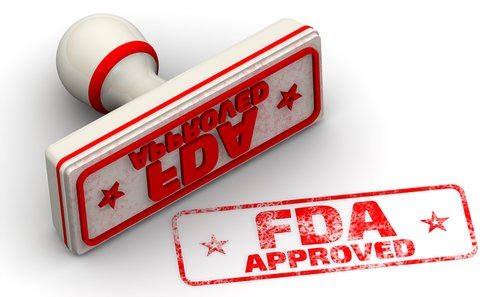The U.S. Food and Drug Administration (FDA) has approved Libtayo (cemiplimab-rwlc), making it the first immunotherapy for people with advanced basal cell carcinoma (BCC) — the most common form of skin cancer — who previously received or were ineligible for treatment with a hedgehog pathway inhibitor.
Based on the results of an ongoing Phase 2 trial, called Study 1620 (NCT03132636), the therapy was granted full approval for patients with locally advanced disease — cancer that has spread only to surrounding tissues — and accelerated approval for those whose cancer has spread to other parts of the body (metastatic disease).
Accelerated approval is a form of conditional approval granted to a medication whose immediate availability fulfills an unmet medical need when its preliminary benefits are found to outweigh its potential risks. Libtayo’s full approval for metastatic BCC will depend on additional data from the trial confirming its clinical benefits.
The decision comes nearly three weeks earlier than the decision’s due date, set for March 3 after the agency granted priority review to Libtayo’s regulatory application.
Libtayo is now the first immunotherapy approved for patients with forms of advanced BCC, which is “a persistent, painful and highly disfiguring cancer,” Karl Lewis, MD, a Study 1620 investigator and a professor in the division of medical oncology at the University of Colorado, said in a press release.
“While the primary systemic treatment options are hedgehog inhibitors, many patients will eventually progress on or become intolerant to this therapy,” he added. Of note, hedgehog inhibitors work by suppressing the activity of the hedgehog pathway, which is involved in cell growth and is overly activated in most BCC cases.
Libtayo’s approval “will change the treatment paradigm” for these patients, as they now “have a new immunotherapy option that has demonstrated clinically meaningful and durable anti-tumor responses,” Lewis said.
A similar regulatory application requesting Libtayo be approved to treat locally advanced BCC is currently being reviewed in Europe, and a European Commission decision is expected by mid-year.
The therapy is also approved in the U.S. and Europe for adults with metastatic or locally advanced cutaneous squamous cell carcinoma, a common form of skin cancer, who are not good candidates for surgery or radiotherapy.
Jointly developed by Regeneron Pharmaceuticals and Sanofi, Libtayo is an immune checkpoint inhibitor, meaning that it works by blocking mechanisms often used by cancer cells to evade immune attacks.
Specifically, the therapy prevents interaction between the PD-1 receptor in immune T-cells and its ligand PD-L1 in cancer cells, boosting the ability of immune cells to recognize and eliminate cancer cells.
The FDA decision was based on data from the multicenter Study 1620, the largest trial to date among patients with advanced BCC. The ongoing study is evaluating Libtayo’s safety and effectiveness in 132 adults with advanced BCC whose disease did not respond or progressed after prior hedgehog inhibitor therapy or who were intolerant to such first-line therapy.
Participants are receiving 350 mg of Libtayo directly into the bloodstream every three weeks for up to 93 weeks (nearly two years) or until disease progression or unacceptable toxicity.
The trial’s main goal is to assess the proportion of patients responding to treatment, while duration of response is a key secondary goal.
The effectiveness analysis included 112 participants: 84 with locally advanced BCC who were not candidates for radiation therapy or surgery, and 28 with metastatic BCC.
Results showed that 29% of locally advanced disease patients and 21% of those with metastatic cancer responded to treatment. Complete responses were detected in 6% of patients with metastatic disease, and partial responses occurred in 21% of those with locally advanced cancer and in 23% of those in the metastatic group.
Notably, these responses appeared to be durable, with 79% of responders in the locally advanced group and all of those in the metastatic group still responding after at least six months.
Median duration of response had not yet been reached for either group, with a range of 2.1 to 21.4 months in the locally advanced group and nine to 23 months in the metastatic group.
According to the release, Libtayo is the first treatment to show a clinical benefit in advanced BCC patients following treatment with hedgehog inhibitors.
Safety analysis of all 132 participants showed that most commonly reported adverse events included fatigue (49%), musculoskeletal pain (33%), diarrhea (25%), rash (22%), itchy skin (20%), and upper respiratory tract infection (15%).
Nearly one-third of patients experienced serious adverse reactions, such as urinary tract infection, colon inflammation, kidney damage, anemia, and somnolence. A total of 13% of participants discontinued treatment due to side effects, with the most common being inflammation in the colon and general physical health deterioration.
This study is due to conclude in May 2022.
“We are proud to bring forward a new immunotherapy treatment option for appropriate patients in the U.S. affected by advanced BCC, another devastating non-melanoma skin cancer,” said Peter Adamson, MD, the global head of Sanofi’s oncology development and pediatric innovation.
“Together with Regeneron, we continue to develop Libtayo in numerous clinical trials and settings, including as [single therapy] and in combination with several other therapeutic approaches as part of our commitment to innovation towards meaningful treatment options for patients with significant unmet needs,” Adamson added.
Libtayo is currently being reviewed in both the U.S. and the EU to treat advanced non-small cell lung cancer with high PD-L1 levels.


